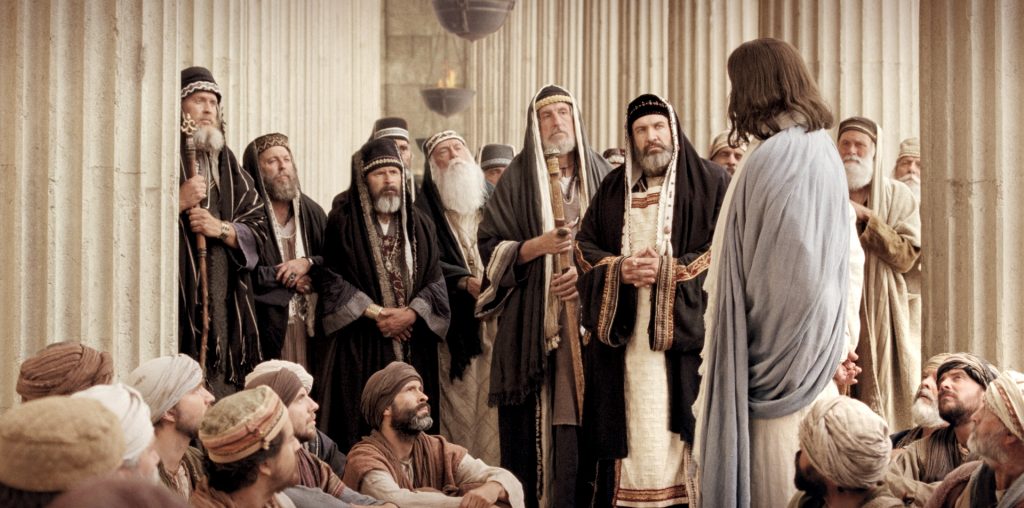
The average American may think that the “Big Game” is the Super Bowl, the seventh game of the World Series, or that magical hoops contest back in high school when he/she won the state championship with a three-pointer at the buzzer.
But the game with the greatest stakes has always been the Honor Game – a dramatic public spectacle that’s been played out in countless communities for thousands of years.
Most ancient civilizations, including Israel, were shame and honor cultures. The highest social value was to be publicly esteemed. The greatest personal disaster (which might also spell disaster for one’s whole family) was to lose face.
Historically, Middle Eastern and Asian cultures have placed great emphasis on personal and family honor. The same was true of the Age of Chivalry in Europe, Victorian England, and the Wild West and Deep South in the United States.
Honor is a zero-sum game. There’s a winner and a loser in every transaction.
In a shame and honor culture, there’s only so much honor to go around. If honor flows to someone’s account, it has to be withdrawn from someone else’s account.
If you’re the wounded party – especially if you’re a male – your damaged reputation must be restored. The heroic Greek ideal was to seek revenge. The mythological champion Achilles wreaked havoc on anyone who offended him. Modern cult heroes like John Wayne would have cheered him on. To quote the Duke from She Wore a Yellow Ribbon: “Never apologize. Never say you’re sorry. It’s a sign of weakness.”
Offended honor might require a duel. “I demand satisfaction!” If both parties fire their guns and miss, so much the better. No one is hurt and both sides have preserved their honor – which is by far the most important outcome.
We may not notice it, but honor and shame are at stake in virtually every Bible story.
As Brandon O’Brien and Randy Richards point out in their book Misreading Scripture with Western Eyes, American Bible students often overlook the fact that Jesus’ private conversations and public confrontations have a very different feel.
Whenever someone approaches Jesus seeking information, they do so privately. Think of Nicodemus the Pharisee questioning Jesus at night, and the disciples taking Jesus aside to ask him the meaning of his parables.
But whenever someone asks Jesus a question in public, they’re not really seeking information. They’re seeking a showdown. The game – the Honor Game, that is – is on. There will be a winner and a loser in this contest, and the crowd will render the final verdict. The loser will be silenced and shamed, while the winner will rise in public esteem.
The disciples of John the Baptist ask openly why Jesus doesn’t instruct his disciples to fast, the way they were taught (Matthew 9:14). The Pharisees want to know who Jesus thinks he is, since he shows no respect for the Sabbath (Mark 2:24). The Sadducees, who don’t believe in the afterlife, play mind games with Jesus in an attempt to make him look foolish. (Matthew 22:23-32) Experts in the Law try to corner him on the red-hot issue of whether Jews should cooperate with their Roman overlords: “Should we pay taxes to Caesar or not?” (Luke 20:22)
In each case, Jesus leaves them in tatters. His questioners walk away feeling foolish. The crowds can’t get enough of it.
This is not to say that Jesus is unloving. But sometimes the truth hurts. And in a shame and honor culture, the wounds of being shown to be wrong – in front of the watching world – can feel deep and raw.
And they can also feel unforgiveable.
People sometimes ask, “If Jesus was this gracious, compassionate, perfect person, why did he have to die? It doesn’t make sense.” But it does make sense in a culture where losing face simply has to be made right.
How can Jesus’ opponents overcome their dishonor?
Maybe they can trap him with better questions. But his answers are so insightful, so surprising, and so disarming that one of his questioners concludes, “No one ever spoke like this man.” (John 7:46) After topping his critics yet again, “they did not dare to question him further.” (Luke 20:40)
If Jesus can’t be publicly silenced in the Honor Game, then his detractors will need to silence him forever. They will cause him to lose honor by being condemned as a criminal. By dying a slave’s death – crucifixion was reserved by the Romans for those with the least public honor – their standing would be restored. “You see, this proves he was a bad person. He was dead wrong. So we win.”
What makes Jesus so different from other ancient world figures is that he wins by losing.
Jesus loses the Honor Game – and in so doing he saves the world.
At the Last Supper, as he kneels to wash the mud and manure from the feet of his disciples – a task explicitly reserved for the least respected servant in the household – he makes it clear that we are to give up playing the Honor Game as well:
Then he said, “Do you understand what I have done to you? You address me as ‘Teacher’ and ‘Master,’ and rightly so. That is what I am. So if I, the Master and Teacher, washed your feet, you must now wash each other’s feet.” (John 13:12-14)
Every day we have a chance to win the Big Game – looking good, feeling good, and making good – the contest that’s so important to so many people.
Or we can choose to lose – and in the process find ourselves in God’s Winners Circle.
